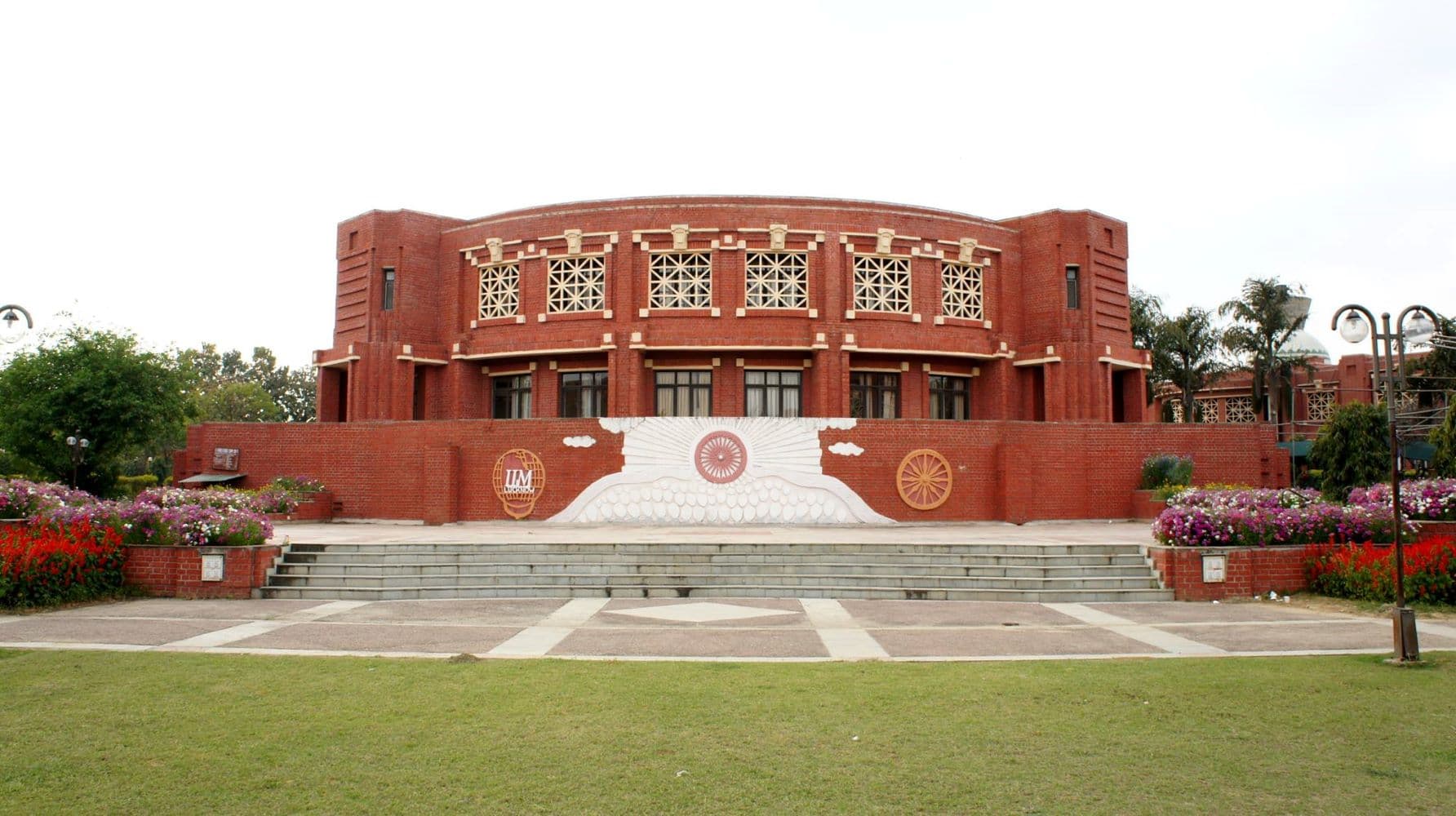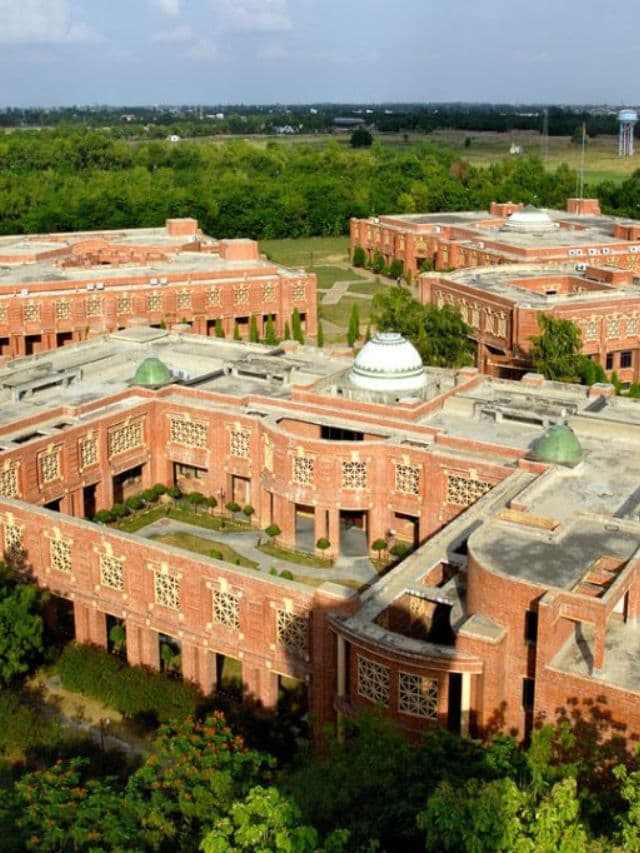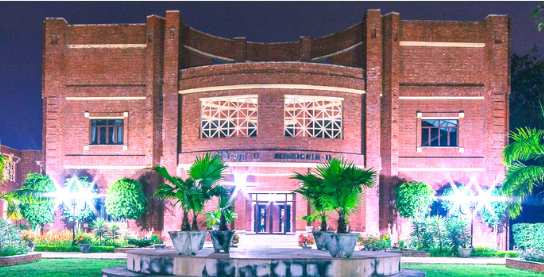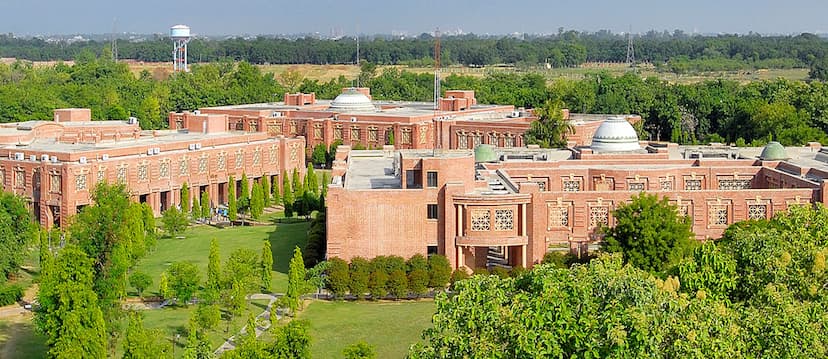IIM Lucknow releases great sustainability report

IIM Lucknow recently brought out a comprehensive environmental sustainability report.
It shed light on resource footprints and greenhouse gas emissions across Lucknow and Noida campuses of IIM Lucknow.


It also shows its unwavering commitment to integrating sustainability in theory and practice when it comes to imparting an environmentally and socially conscious learning process by a reputed Indian B-School, say sources from IIM Lucknow.
Preparation
The report has been prepared by The Energy and Resources Institute (TERI) and the institute’s project was spearheaded by Prof. Kaushik Ranjan Bandyopadhyay and Prof. Dipti Gupta at the Centre for Business Sustainability (CBS), a Centre of Excellence at IIM Lucknow.
The assessment employed a mixed-method approach, amalgamating qualitative and quantitative data analysis based on questionnaire-based surveys, insights from secondary literature, and comprehensive onsite assessments, say sources from IIM Lucknow.

Scope
The assessment’s scope spanned a wide arena including:
·Estimation of energy consumption and GHG emissions
·Inventorization of carbon sink to assess the carbon sequestration potential

·GHG emission avoided through renewable energy usage
·Solid waste generation and utilization
·Water consumption
·Taking stock of conservation initiatives through groundwater recharge and wastewater treatment

·Paper consumption
·Biodiversity assessment
First-of-its-Kind
Given that this was also a first-of-its-kind endeavour towards establishing a GHG emissions inventory by IIM Lucknow, the focus was primarily on estimating Scope 1 and Scope 2 emissions.
Also read – TS DOST 2024 Application Submission till 29 May 2024 For Phase 1, For UG Admissions in Telangana
Scope 1 emissions represent direct emissions controlled by an organization, while Scope 2 emissions are indirect emissions resulting from the organization’s activities but occurring from sources not owned or controlled by it.
Scope 2 emissions largely arise from electricity that an organisation buys from the electric grid, say sources from IIM Lucknow.
Sustainability
Prof. Kaushik Ranjan Bandyopadhyay, Chairperson, Centre for Business Sustainability, IIM Lucknow spoke about the report.
‘The institute has taken a critical step to chart out a path to internalize the concerns of sustainability in a holistic manner and also shows its commitment to a Net Zero future, which only a handful of higher education institutions in the world has been able to demonstrate so far.’

The institute has prioritized planting native tree species to enhance carbon sequestration, significantly offsetting emissions.
The Lucknow campus has installed rooftop solar panels, contributing to a notable reduction in fossil fuel-based electricity consumption.
Sustainable mobility is promoted through the use of electric golf carts. Water conservation efforts include monitoring daily consumption and implementing artificial and natural groundwater recharge pits, say sources from IIM Lucknow.
Wastewater treatment facilities on both campuses support horticultural needs, while solid waste management practices ensure substantial recycling efforts.
Additionally, the campuses’ biodiversity initiatives have fostered impressive flora and fauna, supporting the region’s ecological balance, say sources from IIM Lucknow.
Need to develop
Prof. Dipti Gupta, Assistant Professor, Centre for Business Sustainability, IIM Lucknow spoke about the need to develop such sustainability reports.
Sustainability assessment reporting provides a comprehensive understanding of the current situation and the concomitant gap in shaping a sustainable scenario, said Prof Dipti.
It acts as an aid for developing future strategies and policies and helps maintain compliance records for environmental integrity, said Prof Dipti.

Sets the stage
The first-of-its-kind comprehensive environmental sustainability report brought out by IIM Lucknow also sets the stage for implementing targeted initiatives to reduce environmental impact as the institute progressively envisions itself towards a sustainable and net zero future.
Moving forward, IIM Lucknow remains dedicated to fostering a culture of environmental stewardship and driving positive change within the academic community and beyond.
About IIM Lucknow
Indian Institute of Management Lucknow, established in 1984, is the fourth in the prestigious IIM family of management schools to be established in India after IIM Calcutta, IIM Ahmedabad and IIM Bangalore.
In 2005, IIM Lucknow expanded its area of influence in the realm of management education by becoming the first IIM to set up a satellite campus exclusively for Executive Education at NOIDA in Delhi NCR region.
S Vishnu Sharmaa now works with collegechalo.com in the news team. His work involves writing articles related to the education sector in India with a keen focus on higher education issues. Journalism has always been a passion for him. He has more than 10 years of enriching experience with various media organizations like Eenadu, Webdunia, News Today, Infodea. He also has a strong interest in writing about defence and railway related issues.






 Exam is conducted by Acharya Nagarjuna University in Guntur on behalf of Andhra Pradesh State Council For Higher Education (APSCHE).
Exam is conducted by Acharya Nagarjuna University in Guntur on behalf of Andhra Pradesh State Council For Higher Education (APSCHE).

